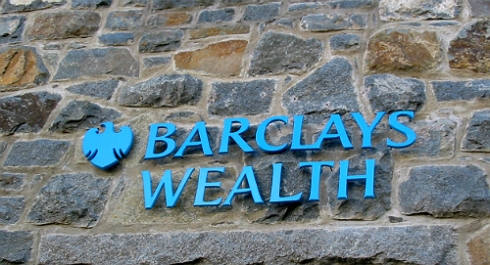Homegrown auto major, the $ 16.7 billion Mahindra & Mahindra Limited, India’s leading SUV manufacturer, has entered into a Preferred Financier tie-up with the State Bank of Patiala, according to a company statement.
From (L-R): Pukhraj Kanther, CGM Commercial Banking, SBoP; S Vijaykumar, CGM Retail Banking, SBoP; SA Ramesh Rangan, Managing Director, SBoP; Purshottam Behera, GM Planning, NB and PS, SBoP; Arun Malhotra, Chief Sales & Customer Care Officer, Mahindra and Jyoti Malhotra, Senior GM Sales North, Mahindra & Mahindra Ltd.
The Memorandum of Understanding (MoU) signed in Patiala on March10, 2014 will enable Mahindra customers to avail of a vehicle loan from any of the 1,175 branches of the bank. Arun Malhotra, Chief Sales and Customer Care Officer, Automotive Division, Mahindra & Mahindra Ltd and Purshottam Behera, General Manager, Planning, New Business & Priority Sector, State Bank of Patiala, signed the agreement in the presence of SA Ramesh Rangan, Managing Director, State Bank of Patiala and S Vijaykumar, Chief General Manager, Retail Banking and Pukhraj Kanther, Chief General Manager Commercial Banking, State Bank of Patiala and Jyoti Malhotra, Senior GM – Sales, North, Mahindra & Mahindra Ltd. The tie-up will enable both the auto maker and the lender to leverage on the inherent strengths of each other’s vast pan-India network of 1175 branches and 250 dealers, respectively.
Rangan, while speaking on the occasion said: “This is an innovative step towards providing better customer satisfaction. Both the parties have mutually agreed to pool their resources together to promote, market and make available organized finance facility at competitive interest rates to customers”.
On the alliance, Malhotra pointed out: “At Mahindra, we relentlessly look at options to provide the best finance schemes to our customers and give them the power of choice. This strategic tie-up is a step in the same direction. 80 percent of all our vehicles are financed of which PSU Banks contribute 15 percent, which makes them an important partner for us and a key sales enabler. The bank offers innovative products and services at affordable rates. With highly competitive schemes for car loans and commercial vehicle loans, we are hopeful of a good response from our dealers and customers”.
Vijaykumar added: “SBoP is expanding its operations in commercial and passenger vehicle financing. It has been making niche offerings to its customers and this arrangement with Mahindra & Mahindra will be one such special initiative. Customers of SBoP will benefit from this tie-up since they will have privileged access to the specialized services of M&M”.















